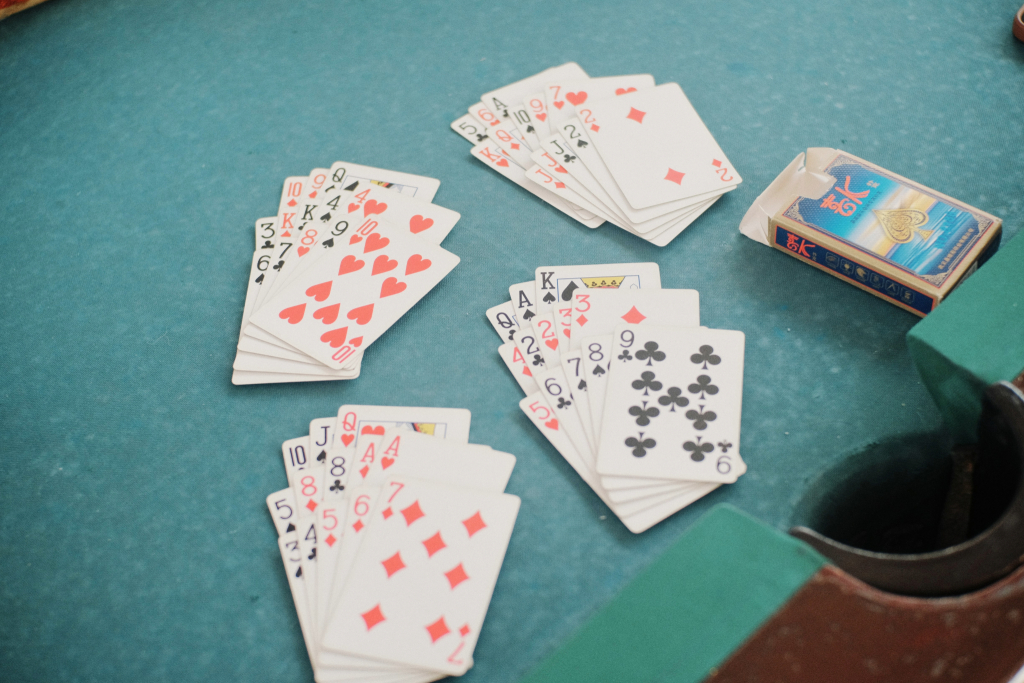German State Treaty Launches July 1st
The parliament of the German federal state Nordrhein-Westfalen has approved the country’s Glücksspielneuregulierungstaatsverag (GlüNeuRStV) — also known as the Fourth State Treaty for Gambling. This marks the sixteenth and final German federal state to do so, meaning the legislation is finally set to come into effect on July 1st, 2021.

The German federal state Nordrhein-Westfalen has ratified the country’s Glücksspielneuregulierungstaatsverag (GlüNeuRStV) — also known as the Fourth State Treaty for Gambling. It is the sixteenth and final German state to approve the legislation. ©pixel2013/Pixabay
Sachsen-Anhalt Was Fifteenth State to Approve Treaty
The parliament of the most populous federal state of Germany, Nordrhein-Westfalen, has finally come out and approved the country’s much-debated Glücksspielneuregulierungstaatsverag (GlüNeuRStV) — most commonly referred to in English as the Fourth State Treaty for Gambling.
Nordrhein-Westfalen is the sixteenth and final German federal state to approve the landmark legislation, closely following the lead of Sachsen-Anhalt.
While only a minimum of thirteen state approvals were needed for the treaty to be able to come into effect, Nordrhein-Westfalen’s decision still proves to be significant, as the treaty is now able to take effect across all sixteen German federal states starting from July 1st, 2021.
Prior to Nordrhein-Westfalen approving the treaty, the state of Sachsen-Anhalt also came out and confirmed the piece of legislation towards the end of April 2021, making it the fifteenth federal state to do so.
The necessary minimum of 13 federal approvals arrived in March, when the parliaments of Schleswig-Holstein and Sachsen joined the fray and ratified the Fourth State Treaty for Gambling.
Sachsen-Anhalt City of Halle Will Host New Regulatory Body
Sachsen-Anhalt’s approval also proves to be crucial for the future of online gambling in Germany, seeing as a new regulatory body is to be established in its major city of Halle. The process to launch the regulatory body is already well underway, with an expected launch date of 2022 already being set.
The regulatory body which is to be hosted in the city of Halle will have a variety of measures at its disposal, such as monitoring players’ gambling in order to ensure all of their activity is legal, as well as offering test purchases and blocking the IP addresses of operators which do not abide by the treaty’s regulations.
The legislation known as the Glücksspielneuregulierungstaatsvertrag (GlüNeuRStv) was first ratified by the German heads of state in March 2020, with the ultimate aim of expanding the scope of iGaming in Germany by allowing for more forms of online gambling.
Nordrhein-Westfalen Prime Minister Welcomes Treaty
Following the news of Nordrhein-Westfalen’s approval of the Glücksspielneuregulierungstaatsvertrag (GlüNeuRStv), the state’s prime minister Armin Laschet provided some statements welcoming the treaty.
Party leader of the Christian Democratic Union of Germany (CDU) party as of January 2021, Laschet used the treaty’s final approval as an opportunity to praise the virtues of federalism in Germany:
“This state treaty was a Herculean task and, as a result, is a strong sign of how federalism lives and functions in Germany and how it comes to the right results through sometimes arduous negotiations. A joint effort was made to solve a problem that had seemed unsolvable for years. The conflicting interests, needs and concerns for the benefit of all 16 states were considered.”– Armin Laschet, Party leader of the Christian Democratic Union of Germany (CDU)
Certain Aspects of Treaty Remain Controversial
As the Fourth State Treaty for Gambling finally receives approval from all sixteen German federal states, numerous aspects of the legislation remain controversial in the wider gambling market.
For example, slot stakes will be restricted to a €1 limit per spin, with the spin speed average for slot games now being limited to 5 seconds.
Players engaging in live sports betting will only be permitted to bet on the final result or on the next scorer, a regulation which German operator association the Deutscher Sportwettenverband has already spoken out against.
In order to facilitate responsible gambling habits, the Fourth State Treaty also mandates monthly financial limits for all users, which are to be set by the players themselves.
Survey Suggests Turnover Tax May Fuel Unlicensed Gambling
Most notable, however, is the highly controversial 5.3% turnover tax set to be applied to online slots and poker games — a provision which has prompted much debate.
The results of a recent online study conducted by consulting and research group Goldmedia claim that the proposed 5.3% stake tax could lead up to 49% of players to play with unlicensed operators.
Conducted on behalf of operators Entain, Flutter Entertainment and Novomatic subsidiary Greentube, the study makes the case that if payout ratios of online slot machines are to be reduced due to the proposed 5.3% turnover tax, the use of regulated sites and operators could drop down to 51%.
This means that 49% of players would most likely begin seeking out offers and bonuses through unregulated black market sites and unlicensed operators.
This potential shift towards unlicensed gambling would most likely be due to the fact that unregulated sites would simply offer players better payout rates, at around 98%, in contrast to the payout for regulated offerings being closer to 90% as a result of the turnover tax.
The study surveyed 619 slots players, revealing that the majority of players, 54% to be exact, valued payout percentages more than any other factor while gambling.
31% of these players valued the fact that an operator was licensed, before 6% cited the range of products being most important to them, with only 6% valuing player protection measures.
Transitional Period for iGaming Has Been in Effect Since August 2020
While German states patiently waited for the Fourth State Treaty for Gambling to be ratified by at least 13 federal parliaments before being allowed to be implemented, a transitional period for the online gambling industry has been in force since August 2020.
Acting essentially as a stand-in for the Fourth State Treaty’s regulations, the transitional period allows operators to offer heavily regulated forms of online poker and slots without fear of breaching any current laws.
Along with the aforementioned €1 per spin stake cap, operators have been required to remove all table games from their German-facing sites and implement a €1,000 monthly spending cap across all regulated forms of online gambling.
Worth noting, however, is that certain customers can bypass this regulation by applying to have their spending limit raised to €10,000, and sometimes even €30,000 — provided only if they undergo enhanced due diligence checks and monitoring of their betting activity.



